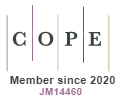Social representations of resocialization through Education: can prison become an educational space?
DOI:
https://doi.org/10.5585/dialogia.n34.16702Keywords:
Prison education, Resocialization, Social representations.Abstract
This article derives from a research carried out with 80 subjects, in two male prisons in Rio de Janeiro, with the objective of identifying social representations of resocialization through education. We present aspects related to the perception of the school and to a social representation that emerged in the analysis of the collected data: that of “framework”, a series of attitudes and thoughts that allow survival inside the prison. We conclude by stating three imperative needs: the construction of a concept of prison education not as a benefit, but as a citizen right; material and human investment in educational spaces located in a prison environment; and the existence of a real school of resocialization. This school cannot be represented as derived from the “framework” of prisoners, but act for the outside world and promote the creation of support networks in the context “outside the walls”, also contemplating the families of prisoners.Downloads
References
ABRIC, Jean-Claude. A abordagem estrutural das representações sociais. In MOREIRA, Antonia S. P. e OLIVEIRA, Denise C. (Orgs.). Estudos interdisciplinares de representação social. Goiânia: AB, 1998.
BARDIN, L. Análise de conteúdo. Lisboa: Edições 70, 1979.
BARROS, A. de J. P.; LEHFELD, N. A. de S. Projeto de pesquisa: propostas metodológicas. Petrópolis: Vozes, 1996.
BRASIL. Constituição da República Federativa do Brasil de 1988. Brasília, Presidência da República, Casa Civil. Disponível em: http://www.planalto.gov.br/ccivil_03/Constituicao/Constituicao.htm. Acesso em: 20 fev. 2020.
BRASIL. Lei Nº 7.210, de 11 de julho de 1984. Institui a Lei de Execução Penal. Brasília, Presidência da República, Casa Civil. Disponível em: http://www.planalto.gov.br/ccivil_03/leis/l7210.htm. Acesso em: 20 fev. 2020.
BRASIL. Lei Nº 12.433, de 29 de junho de 2011. Altera a Lei nº 7.210, de 11 de julho de 1984 (Lei de Execução Penal), para dispor sobre a remição de parte do tempo de execução da pena por estudo ou por trabalho. Presidência da República, Casa Civil. Disponível em:http://www.planalto.gov.br/ccivil_03/_ato2011-2014/2011/lei/l12433.htm. Acesso em: 20 fev. 2020.
BRASIL. Levantamento Nacional de Informações Penitenciárias / atualização junho de 2017. SILVA, Marcos Vinícius Moura (Org.). Brasília, Ministério da Justiça e Segurança Pública, Departamento Penitenciário Nacional, 2019. Disponível em: http://depen.gov.br/DEPEN/depen/sisdepen/infopen/relatorios-sinteticos/infopen-jun-2017-rev-12072019-0721.pdf. Acesso em: 20 fev. 2020.
DE MAEYER, Marc. Na prisão existe a perspectiva da Educação ao longo da Vida? In Revista de Educação de Jovens e Adultos, Nº 19. Brasília: RAAAB, UNESCO, Governo Japonês, jul. 2006, p. 18 – 37.
DESCHAMPS, J. C. e MOLINER, P. Identidade em Psicologia Social.Petrópolis: Vozes, 2009.
JODELET, D. Représentations sociales: phénomènes, concept et théorie. In:MOSCOVICI, S. (Ed.). Psychologie sociale. Paris: Presses Universitaires deFrance, 1984.
MENDES, Luiz. Como nasceu a ideia deste guia. In: SÃO PAULO. Dicas:
O guia que você precisa para ficar livre de vez. São Paulo: FUNAP, DRS/SAP, 2006.
Disponível em:http://www.reintegracaosocial.sp.gov.br/db/crsc-kyu/archives/a6c6f3852dd2b3aa7e04ce627434f478.pdf. Acesso em 27 fev. 2020.
MOSCOVICI, S. A representação social da psicanálise. Rio de Janeiro: Zahar,1978.
MOSCOVICI, Serge. Notes towards a description of Social Representations. European Journal of Social Psychology, 18, 1988, p. 211-250.
Downloads
Published
How to Cite
Issue
Section
License
Copyright (c) 2020 Eloiza da Silva Gomes de Oliveira, Ronaldo Silva Melo

This work is licensed under a Creative Commons Attribution-NonCommercial-ShareAlike 4.0 International License.
- Abstract 1523
- PDF (Português (Brasil)) 883






